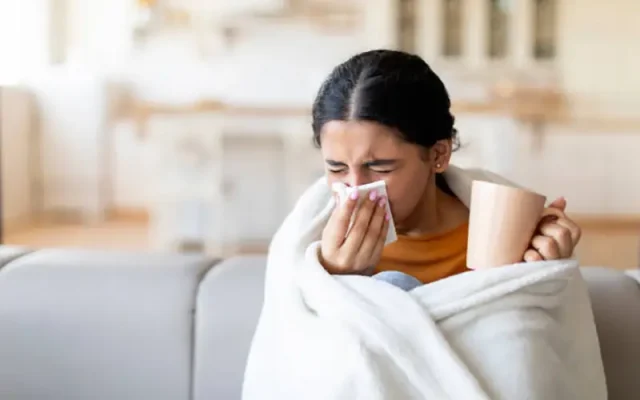
5 ways to prevent yourself from flu
Dr. Navin Kumar Mishra
WHAT IS FLU?
Flu is a contagious respiratory illness caused by influenza viruses. Flu, also called influenza, is an infection of the nose, throat and lungs, which are part of the respiratory system.
Key Facts:
· There are around a billion cases of seasonal influenza annually, including 3–5 million cases of severe illness.
· It causes 290 000 to 650 000 respiratory deaths annually.
· Ninety-nine percent of deaths in children under 5 years of age with influenza-related lower respiratory tract infections are in developing countries.
Flu seasion:
Flu season usually runs between September and May. In temperate climates, seasonal epidemics occur mainly during winter, while in tropical regions, influenza may occur throughout the year, causing outbreaks more irregularly.
Mode of Transmission:
Influenza spreads easily between people thru tiny droplets during cough or sneeze. Symptoms begin 1–4 days after infection and usually last around a week. most infected individuals are contagious during the first three days.
Symptoms:
• Sore throat and runny nose
• Fever.
• Cough usually Dry
• Headache.
• Muscle aches.
• Feeling very tired.
• Sweating and chills.
Prevention:
Vaccination.
Pregnant women
Children aged 6 months to 5 years
People over age 65
People with chronic medical conditions
Health workers.
Avoid exposure to infected Individuals by
Using Mask
Keeping Distance
Respiratory Hygiene
Wash and dry your hands regularly
Cover your mouth and nose when coughing or sneezing
Dispose of tissues correctly
Stay home when feeling unwell
Avoid close contact with sick people
Avoid touching your eyes, nose or mouth.
Management:
Majority resolves spontaneously.
Adequate Hydration,
Rest
Treatment should aim to relieve symptoms.
Anti-virals only for severe case upon doctors recommendation.
No role of Antibiotics in general. However, if risk of bacterial infection and severe disease, upon Doctors advice antibiotics may be required.
If Symptom worsens, oxygen level drops, breathing difficulties, chest tightness, etc occurs: immediately consult a Doctor.
High-Risk group
• Pregnant
• Children under 59 months of age
• Elderly 65 years and older
• living with other chronic illnesses
• Receiving chemotherapy
• living with suppressed immune systems due to HIV or other conditions.
